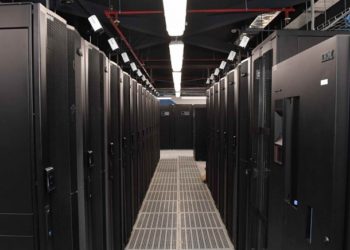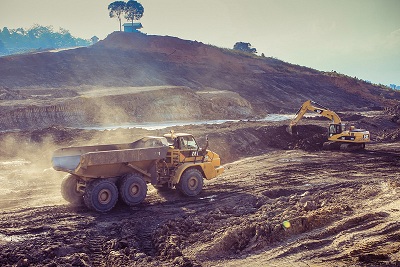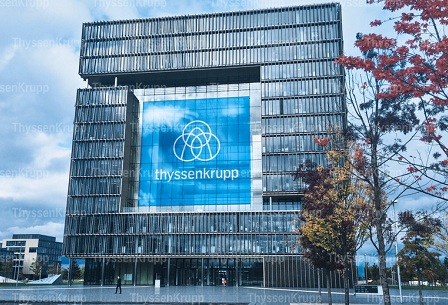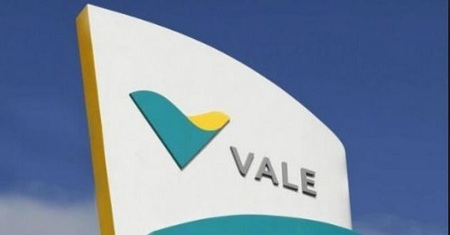As concern for environmental issues continues to grow in China, enterprises and government officials should increasingly expect to be subject to public opinion. Minter Ellison says the new amended Environmental Protection Law (EPL) will make it more difficult for enterprises to skirt environmental laws, and for officials to fail to enforce the law, without being subject to public scrutiny. Minter Ellison’s Hong Kong office has prepared the following commentary on how the new EPL will affect doing business in China.
Green China
There is increasing concern being expressed by people in China about environmental protection.
THE new Environmental Protection Law (EPL) came into force on January 1, 2015, after being approved by the National People’s Congress in 2014. It is the first amendment to the Environmental Protection Law which originally came into force more than 25 years ago. The updated law makes significant progress to:
- Promote transparency and availability of information from private enterprises and government authorities;
- Make it easier to bring public interest litigation; and
- Strengthen penalties on polluters and the relevant governmental agencies for failing to fully enforce the law.
The main features are:
Increased public disclosure of information
The new EPL grants rights to citizens, legal persons and other organizations in China to obtain environmental information in order to participate in and supervise environmental protection. To facilitate this process local governmental authorities are now required to increase transparency and make environmental information publicly available, such as environmental quality, monitoring data, environmental incidents and the collection and use of pollution discharge fees.
In addition, the EPL requires key polluting enterprises to disclose their pollution discharge information, including description of key pollutants, discharge method, discharge concentration and total quantity, as well as pollution prevention plans, environmental impact assessments and environmental emergency plans.
The driver behind the increased disclosure requirements is to promote public awareness and accountability of governmental authorities and polluters. This new reality in China will require enterprises to not only comply with environmental laws, but importantly, to be seen to be complying. These environmental compliance measures will be an additional cost of doing business in China that new and existing enterprises will need to factor in.
New EIA assessment process
Although the requirement to conduct an Environmental Impact Assessment (EIA) for planning and implementing construction projects was established under China’s Environmental Impact Assessment Law in 2003, there was little public participation or transparency in the process. The EPL expands requirements with respect to this process. If an EIA is required by law for a construction project, the project developer must include the public who may be affected by the project in the EIA process by explaining the relevant project and seeking their opinion.
The EPL further requires government authorities to ensure public opinions on the proposed project have been sought and adequately considered during the EIA process and also to make the EIA reports publicly available (except for information involving State secrets and commercial secrets).
If the developer fails to submit an EIA report that fully complies with the new requirements, including seeking public opinion, authorities may order the developer to stop construction, impose fines and order the developer to restore the site to its original condition.
Increased liabilities for violation
Under the original EPL non-compliance with the law was widely seen as cheaper than compliance. The new EPL seeks to address this by substantially increasing the penalties for enterprises that violate the law and also meaningfully penalising the responsible persons of the violating enterprises.
Cumulative fines:
Under the original EPL, any violation was subject to a one-off fine, allowing a polluter to continue polluting without recourse after payment of the fine. However, the new EPL adopts a cumulative fines approach – instead of a capped one-off fine. Violating enterprises may be subject to fines that accumulate on a daily basis without a cap as long as their contravention continues after they receive orders from authorities to rectify their contravention.
Cumulative fines are determined by reference to certain factors such as the operation costs of pollution prevention facilities and direct losses caused by the illegal act or income derived from that act.
These measures are aimed at making compliance with the law more appealing than non-compliance and removal of the cap on fines will likely increase costs for enterprises that fail to meet environmental standards. This could level the playing field for enterprises with high compliance standards and add pressure to those that may have gaps in their environmental compliance practices.
Imprisonment:
In case of non-compliance by an enterprise the persons in charge or others directly responsible for non-compliance may face imprisonment for up to 15 days. A significant problem under the old EPL was the lack of incentive for enterprises to comply with the law. Personal liability, including imprisonment, is a significant development to encourage compliance with the new EPL. While it is too early to determine how frequently this penalty will be used, the mere possibility of imprisonment is expected to be a highly effective measure to encourage compliance.
Seizure of equipment:
The new EPL empowers local government environmental protection departments to seal up and seize facilities and equipment of enterprises that is causing or likely to cause serious pollution. This is another new penalty.
The interpretation of ‘causing or likely to cause serious pollution’ by each local environmental protection department is now an important consideration for all polluting companies in China. The new EPL provides considerable scope for the application of this clause to be expanded at local level and therefore this matter will have to be considered specifically in the context of the location of each facility an enterprise operates. In addition, this penalty should be considered in conjunction with the increased transparency and disclosure requirements and the potential for public pressure on officials to take a hardline approach to companies that the public consider as causing pollution.
On the face of the relevant provision under the new EPL, it would appear to allow environmental protection authorities to seal up/seize facilities for any unauthorized discharge of pollutants. It is hoped that the Ministry of Environmental Protection and its local counterparts are encouraged to institute safeguards so that property sealing up/seizure only occurs in truly compelling circumstances and is not misused, or used inconsistently by government officials.
Delegation of powers:
Under the original EPL it was possible for local governments, rather than the specific environmental protection departments, to suspend or shut down operations of an enterprise not complying with its environmental obligations. The new EPL redirects this power to the relevant environmental protection department within local government. This is important when considered in connection with the penalties on officials within these departments to fully implement the law.
This amendment is important as it aims to tackle non-compliance from both ends – encouraging compliance with the law and ensuring there are consequences for non-compliance. By empowering the environmental protection departments with the authority to enforce the law, and to punish officials for not doing so, the risk of the law not being properly implemented is reduced.
Increased liabilities for officials:
The new EPL takes a carrot and stick approach to encourage officials to enforce the law. Local governments are now encouraged to include proper enforcement of the law as a factor in performance appraisals of environmental protection department officials. However, in the event an official fails to properly enforce the new EPL, not only will this be reflected in their appraisal, the official will also be subject to increased penalties. An official may be subject to demerits, demotions, dismissal and criminal prosecution if they unlawfully grant an approval, cover up a violation, fail to make a decision on suspension or closure of an operation, or fail to make publicly available environmental information.
Initiating public interest litigation
Under the original EPL it was often considered that only the government authorities had standing to commence litigation against polluters for a breach of environmental obligations. However, a significant development in the new EPL is to set-out a procedure and requirements for certain social organizations (NGOs) to have standing to initiate ‘public interest litigation’. This builds on the amended PRC Civil Procedures Law (effective on January 1, 2013), which established the public interest litigation system but which failed to detail the rules on who had standing to initiate such litigation.
In order for an NGO to have standing to initiate public interest litigation against a polluting enterprise, the NGO must:
- Be registered with the civil affairs department of a government of a municipality divided into districts, or above;
- Have at least five years’ experience in environmental protection activities for the public interest and not have committed any violations in that time; and
- Not seek economic gains through the litigation.
An NGO may only bring actions against an enterprise for failing to comply with its environmental obligations and may not initiate litigation against a government official for failing to properly enforce the law.
Since implementation of the new EPL, the first public interest environmental lawsuit has been initiated by an NGO. All-China Environment Federation filed a lawsuit against a glass manufacturer with the Intermediate Court of Dezhou City, Shandong Province for air pollution in March 2015. The claimed damages is approximately RMB30 million.
This is a significant development in the evolution of China’s environmental protection. We understand that there are more than 700 NGOs that potentially have standing to litigate enterprises in breach of their environmental obligations. This, in conjunction with the increased transparency and availability of information of polluting activities of enterprises, will make it harder for enterprises to hide non-compliance or avoid consequences of non-compliance.
Encouraging whistleblowers
Any citizen, legal person or other organization is now able to report the following non-compliance:
Environmental pollution and ecological destruction by any organization or individual – to environmental protection departments; and
Non-performance of duties by environmental protection departments – to government authorities at a higher level.
Authorities receiving these reports are obliged to keep information of informants confidential. This is yet another layer to encourage public involvement in environmental protection and make it increasingly difficult for enterprises and government officials to avoid their obligations.
Central Government legislation
To strengthen enforceability of penalties stipulated under the new EPL, the Ministry of Environmental Protection has promulgated several rules on implementing the penalties:
Measures on Implementing Fines Accumulated on a Daily Basis by Environmental Protection Departments (Fines Measures);
Measures on Implementing Restrictions to Manufacturing and Suspension of Production for Rectification Environmental Protection Departments; and
Measures on Implementing Seal-up and Seizure of Assets by Environmental Protection Departments (Seal-up Measures).
These measures came into force on January 1, 2015, together with the new EPL. The measures detail the criteria for applying the relevant penalties under the new EPL and expand the application of such penalties to some extent. The Fines Measures and Seal-up Measures both stipulate the typical misconduct subject to fines or which would result in seal-up/seizure of assets. In addition, the measures provide a catch-all clause to cover other unlisted actions; effectively allowing the environmental protection departments to expand the range of actions of an enterprise that may be subject to punishment.
Local legislation
The new EPL grants local congresses powers to legislate on an expanded scope of environmental non-compliance that is subject to cumulative fines. For example, The People’s Congress of Guangdong Province passed new regulations on environmental protection on January 13, 2015. Under the regulations, cumulative fines are expanded to the following actions:
Dismantling or leaving idle installation for pollution control without prior approval;
Violating compulsory disclosure requirements by key polluting enterprises; and
Starting construction before submitting EIA documents.
Future amendment to EIA Law
The EIA Law was implemented in 2003. With the new EPL in place, certain discrepancies have been identified between the two laws, including the following:
Disclosure of EIA report: The new EPL imposes a new obligation on each environmental protection department to disclose the EIA reports they receive to the public, except for information involving State and commercial secrets. As the primary law that sets forth the EIA procedures, it is necessary to amend the EIA Law to include the corresponding information disclosure requirements required under the new EPL.
New penalties under the new EPL: The new EPL imposes new penalties to enterprises failing to comply with environmental protection requirements. However, the main penalty available under EIA Law is still a one-off penalty. It is possible that the local department may choose to apply the one-off fine instead of the more serious cumulative fines. It is also possible to apply both the one-off fine and cumulative fines as the new EPL does not prohibit the simultaneous application of EIA Law. Therefore, the EIA Law shall be amended accordingly to be adapted to new penalties under the new EPL.
In light of these discrepancies it is necessary to amend the EIA Law for consistency with the new EPL. Proposals to amend the EIA Law were raised during the session of National People’s Congress in March this year.
Cost of non-compliance
Under the original EPL, enterprises that fail to comply with regulations are subject to capped one-off fines. Such punishment for non-compliance has been viewed as not serious enough and many enterprises kept violating regulations by simply paying fines as a cost of doing business, which are normally much less than the cost of compliance. With the new EPL, the increased liabilities for non-compliance, if properly implemented, will change this situation.
Cost of compliance
The new EPL may significantly increase operational costs of enterprises in some manufacturing industries which are traditionally heavy polluters and have been failing to comply with environmental protection regulations, eg steel, petrochemical and pharmaceutical enterprises.
Many manufacturers in these industries will have to suspend production to make way for improvement projects for compliance. If they cannot endure the costs involved, some of them may be forced out of business. It is estimated that the entire steel industry would have to spend RMB90-110 billion (US$14-$18 billion) on improving facilities to meet requirements under the new EPL, and the improvement projects are also expected to raise operational costs by RMB80 billion (US$13 billion) per year due to maintenance fees and other expenses.
Who will benefit from compliance?
Enterprises not as severely impacted with costs of complying are likely to reap most rewards because the new EPL requires that the Chinese government introduce fiscal, tax, price and government procurement policies and measures to encourage and support enterprises to further reduce emission of pollutants.
It is also expected this policy will translate into more work for the environmental protection industry and environmental consultants as a result of the increased need for environmental protection equipment, technologies and services. Increased penalties for non-compliance and preferential treatments for compliance will provide greater incentives for enterprises to purchase and use emissions-reduction technologies.
Deficiencies
Although the new EPL has made progress, there are still gaps.
The law fails to say in what specific forms information will be disclosed, whether the information will be viewable on websites, downloadable, or printed so as to be assessed by the public. Moreover, the law contains no requirements with respect to specifics of the kind of environmental data that will be released.
So far, disclosure of information has mainly focused on air pollution due to the long acknowledged air quality problems, while information about water and soil quality does not receive much publicity. The Ministry of Environmental Protection classified soil pollution data as a State secret and therefore withheld such data from the public. In the absence of detailed rules under the EPL on data subject to public disclosure, more sensitive environmental data may continue to be withheld without justification.
Public interest lawsuits
Individual citizens are still unable to file environmental lawsuits on behalf of the public. Although NGOs are granted standing to file such lawsuits, the new EPL imposes stringent criteria for the eligibility of NGOs. An NGO must have a record of non-violation for five or more years so as to be eligible to file a public interest lawsuit. The non-violation record is ambiguous as it is not defined under the new EPL, and the law contains no procedures to verify the non-violation record of NGOs, which might be difficult to prove in practice. This may be used by defendants or even the courts to disqualify NGOs for filing a public interest lawsuit.
Enforcement
Another concern is that implementation and enforcement of the law may prove difficult, notwithstanding that the new law introduces harsh punishments and incentives for both enterprises and government officials.
Since the restructuring of government departments and elevation of the State Environmental Protection Administration to the current Ministry of Environmental Protection in 2008, financial and staff resources as well as powers provided to the Ministry have only increased incrementally. The expected transformation of the environmental governance system has yet to materialize.
Insufficient resources and structural challenges will continue to be an obstacle to China’s progress toward more effective environmental governance and may therefore become a drag on the Ministry and its local counterparts to enforce the new EPL.
Local governments also need to change their mentality to consider not only regional economic development but also the need to protect and maintain ecological systems over the long-term. Since local governments still rigidly control personnel and finances at local environmental protection bureaus, it is uncertain to what extent local bureaus will be able to avail themselves of their powers under the new EPL, particularly if local governments still favour short-term regional economic development over environmental protection.








